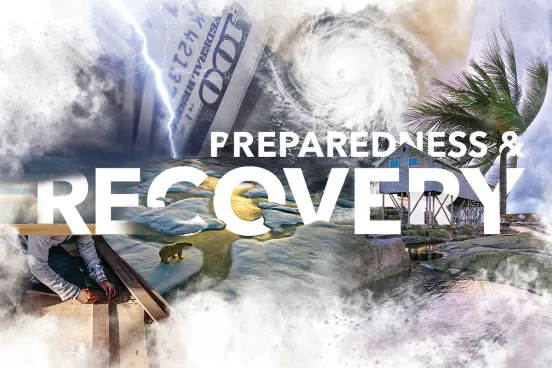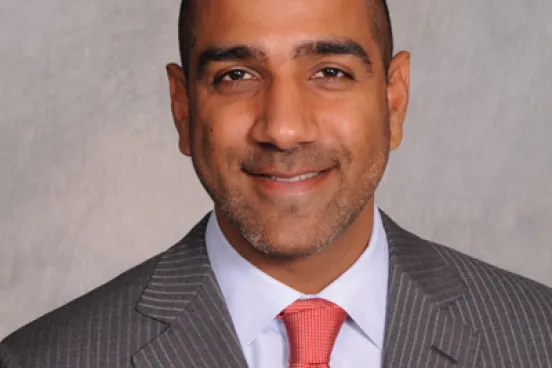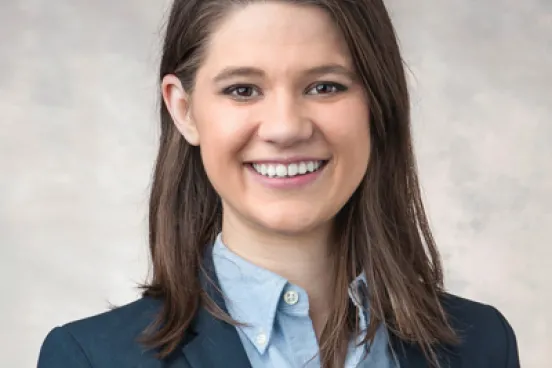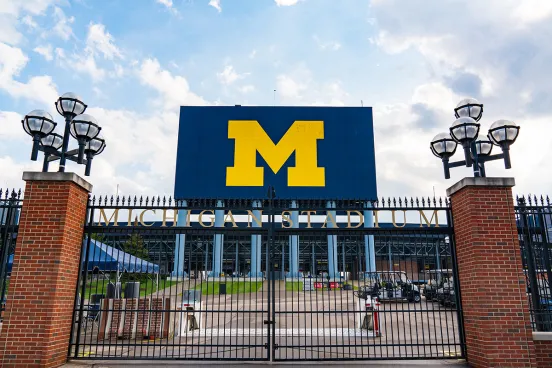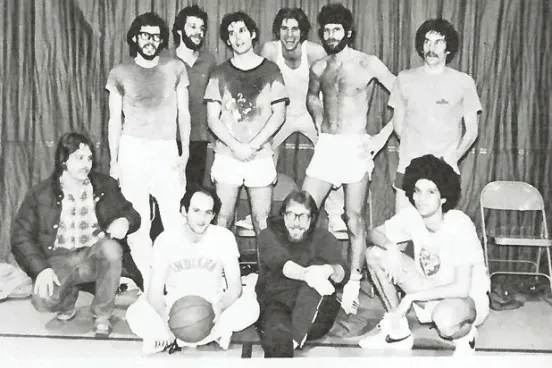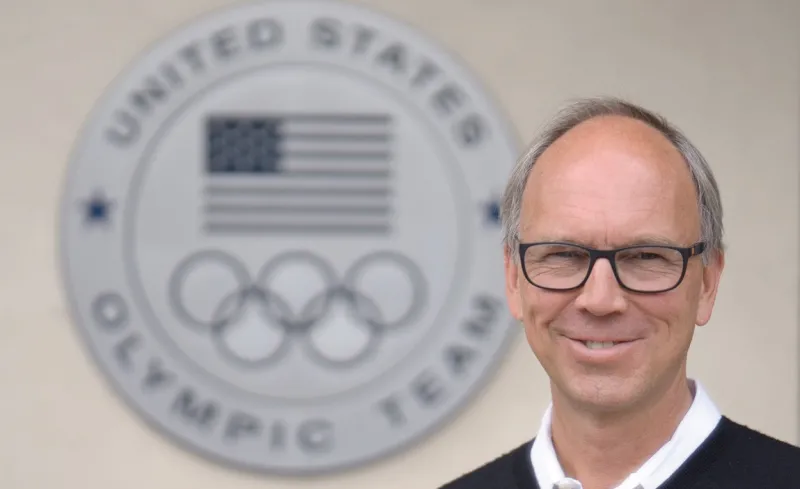
There is such a thing as “Five-Ring Fever,” and Chris McCleary certainly has it.
He first caught it at the 1996 Summer Olympics in Atlanta, and he’s never lost it. It’s what you would expect, given that McCleary is the general counsel for the U.S. Olympic Committee (USOC).
“Seeing American athletes have signature moments in their lifetime—there’s nothing like it,” says McCleary, who witnessed two such moments in February at the Winter Olympics in Pyeongchang, South Korea.
McCleary was in the stands when the U.S. men’s curling team beat Sweden to win the country’s first Olympic gold medal in the sport, and he was there when the U.S. women’s hockey team defeated Canada in a penalty shootout to win gold.
“That was a great moment where everyone was crying and raising the American flag,” McCleary says. “I think even the team that didn’t win felt like they were in one of the greatest matches of their life. It was thrilling.”
McCleary, ’91, joined the USOC in January 2015, though his involvement with the Olympics started when he was working in-house at Visa Inc., where, in addition to other roles, he was the senior vice president and senior associate general counsel of global brand and client management. His work at Visa, a worldwide sponsor of the Olympics, positioned him well for his legal duties at the USOC.
As general counsel, McCleary’s responsibilities include all USOC legal, contract, intellectual property, and dispute resolution matters. Because the USOC’s goal is to support athletes in their Olympic endeavors, a big part of McCleary’s job is securing national and international sponsorship deals.
The USOC is one of 206 national Olympic committees around the world, but unlike other committees, it does not receive funding from the government. Instead, Congress—through the Ted Stevens Olympic and Amateur Sports Act of 1978—granted the USOC exclusive ownership of all official Olympics trademarks, logos, and phrases, including the five interlocking rings and Team USA.
“As a result, the USOC needs to get donations and sponsorships from organizations that would like to be associated with those marks,” McCleary says.
Under the Ted Stevens Act, the USOC also was given the responsibility to recognize the different nonprofit sports entities—called National Governing Bodies (NGBs)—whose athletes participate in the Olympics. USA Volleyball, USA Basketball, and USA Track & Field are examples of NGBs.
“The USOC’s responsibility is to figure out which of those entities can be an NGB for a sport, and then try to mediate between all the different NGBs and make the rules clear for them so that they treat athletes fairly,” McCleary explains.
“There are 50 NGBs, and while the USOC doesn’t manage them, we recognize them for the purpose of the Olympics. We work with the NGBs to ensure athletes have opportunities to compete, excel, and rise to the top of their sport and be chosen to represent the U.S. on an Olympic or Paralympic team, or on a team in the Pan American Games.”
Though McCleary’s role gives him a front-row seat at each Olympics, like any lawyer, his work mostly is done behind-the-scenes and years in advance of each Olympic Games. McCleary already is finalizing details for the 2020 Summer Olympics in Tokyo and looking ahead to the 2022 Winter Olympics in Beijing.
He and his team are focused on making arrangements for the athletes, which includes getting athletes to and from the host country, figuring out where they are going to live and train, making sure the right food is available for them, ensuring their safety, and getting them to their competitions.
“These are people who have focused on getting themselves honed to the best possible version of themselves as athletes,” McCleary says. “They feel strongly about the routines they want to use, so we work day and night to make sure their routines are the same and any distraction is kept to an absolute minimum so they can focus on what they care about the most.”
McCleary likens the preparation to planning for a wedding.
“You made the arrangements, and now you have to sit back and let things unfold. The thrill of it when you are an attorney is to see everything come to fruition. When you are looking at the men’s curling team winning the gold medal, and U.S. fans are chanting and singing, it’s overwhelming to see it work, just as it would be on that wedding day. You say, ‘wow, this happened, everybody’s here, and we are having this great moment together.’”
Some Olympic moments, however, can’t be anticipated, especially when hundreds of athletes are part of a U.S. delegation.
Case in point: The 2016 Rio Games, during which U.S. swimmer Ryan Lochte and some of his teammates falsely claimed they had been robbed.
“That’s where my job became very different than what I envisioned when I first took it,” McCleary admits.
A late-night phone call revealed that two American swimmers were pulled off their flight home and were being held in a detention center at the airport. That phone call led to an intense week during which McCleary was working around the clock to gather the facts and get the athletes released from Brazilian police custody—all while under the glare of the international spotlight.
“Slowly over the week we were able to pull apart the facts and realized that at first, it looked like our swimmers had been robbed, but later it developed that their story wasn’t hanging together, and that they were doing dumb stuff and got caught,” McCleary says.
“Our first responsibility was to make sure the athletes got home safely, and then once they were home, determine what sanctions to impose on them once it became clear what they had done, which embarrassed the police and people of Rio.”
A big issue McClearly and his legal team are dealing with now—and which also involves the international spotlight, as well as litigation, congressional hearings, and the resignation of the USOC’s CEO—is the Larry Nassar sexual abuse scandal and his affiliation with USA Gymnastics. McCleary says that while officials at the USOC didn’t have any direct relationship with Nassar, officials at USA Gymnastics—one of the NGBs that the USOC supports and recognizes—did.
As the head organization supporting U.S. Olympians, McCleary says it’s necessary for the USOC to lead in this area, including by investigating what happened and doing what’s necessary to help ensure that athletes are kept safe from abuse and other misdeeds.
“What more could the USOC do to help ensure people at NGBs and throughout the Olympic community are conducting themselves ethically and with a focus on athlete safety so something like this doesn’t happen again? That’s what we’re working on,” says McCleary. “This issue is so painful and confusing for people—we need to keep working until everyone understands exactly what happened and can be confident that athletes will be safe.”
Despite the controversy, McCleary’s enjoyment in working for the USOC hasn’t diminished. If seeing athletes at the height of their sport isn’t enough to make this a dream job for McCleary, perhaps it’s the up-and-comers he often sees at the U.S. Olympic Training Center in Colorado Springs, where the USOC is located, who make it more so.
“More than once I’ve gotten to chat with kids who are trying to make their mark and who say, ‘I can’t believe I’m here training at this center with all these great athletes and coaches.’ To see a person like that having that experience, it’s so much more meaningful to me than a great quarterly report. These are people you really want to pull for, people you want good things to happen to, and I love being part of an organization that helps them achieve their dreams.”


